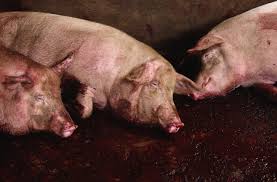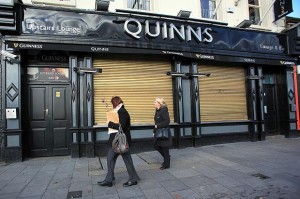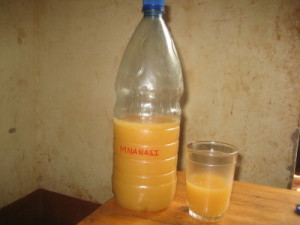Scientists have discovered how a rare amino-acid in humans influences the behavior of the E.coli bacterium.
 Most of the thousands of strains of E. coli are harmless, with many being a normal part of the gut flora in healthy people, however some strains can cause illness in humans.
Most of the thousands of strains of E. coli are harmless, with many being a normal part of the gut flora in healthy people, however some strains can cause illness in humans.
Among the most well-known is E. coli O157, typically acquired via contaminated food, which causes severe diarrhea and can lead to kidney damage.
The O157 strain only infects the gut so scientists at the University of Glasgow wanted to know what stopped it from spreading to other parts of the body.
The team led by Dr Andrew Roe, and PhD student James Connolly of the Institute of Infection, Immunity & Inflammation, analyzed the genome sequence of 1,500 strains of E. coli.
They wanted to see how the genes of the bug, which enable it to attach to and infect a host, responded to varying concentrations of D-Serine, an amino-acid produced in the brain where it plays a role in nerve signaling.
They found that E. coli O157 is unable to attach itself to host tissue in high concentrations of D-Serine. Other strains, such as those that cause meningitis, thrive in the presence of the amino-acid.
The discovery, published in the ISME Journal, opens up the possibility of altering the diet to increase levels of D-Serine to prevent E. coli O157 infection or perhaps treat it.
Dr Andrew Roe, senior lecturer, said: “This work provides new insights into the infection process with the aim of developing compounds that block such bugs from attaching to the host.
“With many strains of E. coli developing resistance to traditional antibiotics, such approaches are urgently needed.
“If we can disarm such bacteria rather than killing them it puts less pressure on the bacteria to evolve into something that is resistant to treatment.”
 E. coli O157 doesn’t normally live in humans, instead residing in the gut of cattle. Eating contaminated food is the most common cause of infection but it can also be picked up in the environment, through contact with the bacteria in fields, for example.
E. coli O157 doesn’t normally live in humans, instead residing in the gut of cattle. Eating contaminated food is the most common cause of infection but it can also be picked up in the environment, through contact with the bacteria in fields, for example.
The genetic variety between strains of E. coli is huge, with around 2,000 ‘core’ genes and 18,000 genes that vary between strains. Different strains are able to attach themselves to different tissues, causing a range of different infections.
The bacterium can cause a wide range of infections including those of the gut, bladder, bloodstream and brain. These can be very common, for example, over half of all women suffer from E. coli associated bladder infections at some point in their lives.
The host metabolite D-serine contributes to bacterial niche specificity through gene selection
ISME Journal [ahead of print]
James PR Connolly, Robert J Goldstone, Karl Burgess, Richard J Cogdell, Scott A Beatson, Waldemar Vollmer, David GE Smith, and Andrew J Roe
http://www.nature.com/ismej/journal/vaop/ncurrent/full/ismej2014242a.html
Abstract
Escherichia coli comprise a diverse array of both commensals and niche-specific pathotypes. The ability to cause disease results from both carriage of specific virulence factors and regulatory control of these via environmental stimuli. Moreover, host metabolites further refine the response of bacteria to their environment and can dramatically affect the outcome of the host–pathogen interaction. Here, we demonstrate that the host metabolite, D-serine, selectively affects gene expression in E. coli O157:H7. Transcriptomic profiling showed exposure to D-serine results in activation of the SOS response and suppresses expression of the Type 3 Secretion System (T3SS) used to attach to host cells. We also show that concurrent carriage of both the D-serine tolerance locus (dsdCXA) and the locus of enterocyte effacement pathogenicity island encoding a T3SS is extremely rare, a genotype that we attribute to an ‘evolutionary incompatibility’ between the two loci. This study demonstrates the importance of co-operation between both core and pathogenic genetic elements in defining niche specificity.
 According to details, Assistant Commissioner (Secretariat) Waqas Rashid conducted surprise inspection of food outlets in Sector F-7 and fined owners. The food outlets that were fined include Roasters Cafe (Rs30,000), Subway (Rs20,000), Gourmet Bakers (Rs20,000), RBS bakers (Rs25,000), Ghousia Restaurant (Rs5,000) and Sadiq Sweets (Rs10,000).
According to details, Assistant Commissioner (Secretariat) Waqas Rashid conducted surprise inspection of food outlets in Sector F-7 and fined owners. The food outlets that were fined include Roasters Cafe (Rs30,000), Subway (Rs20,000), Gourmet Bakers (Rs20,000), RBS bakers (Rs25,000), Ghousia Restaurant (Rs5,000) and Sadiq Sweets (Rs10,000).









